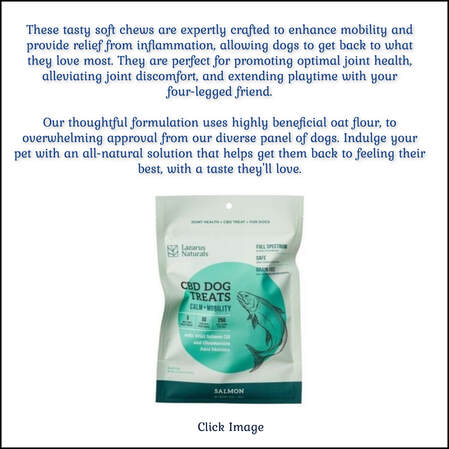
By Dr. Becker
November 2013
I’m back with Dr. Ron Schultz for the second half of our vaccine discussion. Dr. Schultz heads up the Department of Pathobiological Sciences at the University of Wisconsin-Madison School of Veterinary Medicine. He’s joining me today on behalf of an important project he’s been working on for several years – the Rabies Challenge Fund. The purpose of the fund is to determine the duration of immunity conveyed by rabies vaccines, with the goal of extending the required interval for rabies boosters to five and then to seven years.
If you missed the first part of our discussion on Wednesday, I encourage you to watch that video as well (at bottom). Dr. Schultz talks about core and non-core vaccines, and the benefits of the feline leukemia virus (FeLV) vaccine and why he believes every kitten should receive it (I must politely disagree on this topic). We also discuss vaccines Dr. Schultz does not recommend, why the whole topic of titering is so confusing, and whether or not he believes cats should be titer tested.
Continuing our discussion of vaccines today, the first thing I asked Dr. Schultz to talk about – because I don’t know much about it myself and get many questions about it – is the rattlesnake vaccine.
November 2013
I’m back with Dr. Ron Schultz for the second half of our vaccine discussion. Dr. Schultz heads up the Department of Pathobiological Sciences at the University of Wisconsin-Madison School of Veterinary Medicine. He’s joining me today on behalf of an important project he’s been working on for several years – the Rabies Challenge Fund. The purpose of the fund is to determine the duration of immunity conveyed by rabies vaccines, with the goal of extending the required interval for rabies boosters to five and then to seven years.
If you missed the first part of our discussion on Wednesday, I encourage you to watch that video as well (at bottom). Dr. Schultz talks about core and non-core vaccines, and the benefits of the feline leukemia virus (FeLV) vaccine and why he believes every kitten should receive it (I must politely disagree on this topic). We also discuss vaccines Dr. Schultz does not recommend, why the whole topic of titering is so confusing, and whether or not he believes cats should be titer tested.
Continuing our discussion of vaccines today, the first thing I asked Dr. Schultz to talk about – because I don’t know much about it myself and get many questions about it – is the rattlesnake vaccine.
|
How Does the Rattlesnake Vaccine Work, and Is It Effective?
Dr. Schultz explained that the rattlesnake vaccine is actually an aid to prevent death in the event an animal is bitten by a specific type of rattlesnake. He says it does have value in that it can keep an animal bitten by a Western diamondback rattlesnake alive. |
But he cautions that when the vaccine is used, it’s important for pet owners to know their dog must still be treated for snake bite for two reasons. One, the snake may not have been a Western diamondback rattlesnake, in which case the vaccine offers no protection. Two, the vaccine in most cases will not prevent the venom from causing disease. What the vaccine does is buy time to get the animal treated, and it seems to work well in that regard.
I asked Dr. Schultz if he has concerns about the adjuvant used in the rattlesnake vaccine causing a reaction. He replied that unfortunately, nobody knows very much about the vaccine and in his opinion, it hasn’t been adequately tested. Most of the tests were done with rabbits, mice and other species, but not dogs. It should be tested in dogs. There’s just not a lot of research on this particular vaccine.
Dr. Schultz’s View on Lyme Disease Vaccines
Next, I asked Dr. Schultz to discuss his thoughts on Lyme disease vaccines. He explained that there are several of them. There are whole killed organism vaccines of Borrelia burgdorferi, which is the bacteria that causes Lyme disease. And there’s a recombinant vaccine that contains just the important outer surface protein A component.
Dr. Schultz’s recommendation regarding Lyme vaccines depends on where the animal lives. For example, in the Madison area of Wisconsin, there’s currently about a four percent infection rate. But if you travel just 70 miles to La Crosse, there’s about a 70 percent infection rate. And in parts of Long Island, New York, there is a 90 percent infection rate.
So depending on where you live or plan to visit, your dog may have a very high risk of being infected with Borrelia burgdorferi. In high risk cases, Dr. Schultz recommends not only a tick preventive, but also the vaccine. Most of the Lyme disease vaccines are around 60 to 75 percent effective at preventing the organism from causing disease.
Next, I asked Dr. Schultz to discuss his thoughts on Lyme disease vaccines. He explained that there are several of them. There are whole killed organism vaccines of Borrelia burgdorferi, which is the bacteria that causes Lyme disease. And there’s a recombinant vaccine that contains just the important outer surface protein A component.
Dr. Schultz’s recommendation regarding Lyme vaccines depends on where the animal lives. For example, in the Madison area of Wisconsin, there’s currently about a four percent infection rate. But if you travel just 70 miles to La Crosse, there’s about a 70 percent infection rate. And in parts of Long Island, New York, there is a 90 percent infection rate.
So depending on where you live or plan to visit, your dog may have a very high risk of being infected with Borrelia burgdorferi. In high risk cases, Dr. Schultz recommends not only a tick preventive, but also the vaccine. Most of the Lyme disease vaccines are around 60 to 75 percent effective at preventing the organism from causing disease.
|
I asked Dr. Schultz if he has concerns about reactions from Lyme disease vaccines, and he replied that yes, there are some potential concerns. The Lyme vaccines are bacterial vaccines, and bacterial vaccines always carry a greater risk of adverse reactions, especially reactions of an immediate nature. With both leptospirosis bacterin vaccines and Lyme bacterin vaccines, the nature of the bacteria can cause adverse reactions in some animals. According to Dr. Schultz, these vaccines have the ability to stimulate the IgE antibody in animals, which is responsible for immediate or type 1 hypersensitivity reactions. So bacterins are always more likely to cause an adverse reaction than a live viral vaccine, for example.
|
If he were to recommend a Lyme vaccine, Dr. Schultz likes the outer surface protein A product better than the whole killed product because the former takes some of the potentially reactogenic antigens out of the formula. But even with that, the vaccine can still cause adverse reactions in some animals.
What About Leptospirosis? Is It a Bigger Threat Today Than in Years Past?
Leptospirosis (and its vaccines) is another confusing subject. There are veterinarians in the Chicago area who are promoting lepto as some kind of new, trendy infectious disease. But lepto has been around forever. Dr. Schultz agrees – there’s nothing new about leptospirosis. And he believes it’s probably no more common today than it was 40 or 50 years ago, despite the hype, which is driven in part by the really poor diagnostics used to detect the disease.
Fortunately, according to Dr. Schultz, there are better detection techniques on the horizon. The current gold standard, he says, “…is about as poor a test as you’ll ever find.” It gives false readings – false positives. Dr. Schultz says he’s seen a high number of supposed lepto cases that are NOT lepto cases thanks to poor diagnostics. Poor diagnostics have added to the general confusion surrounding lepto, and are partly why veterinarians are recommending mass vaccination against the disease.
Dr. Schultz restated that in his view, lepto is no more prevalent today than it was 40 years ago. However, the vaccine has improved tremendously in recent years, because it now contains the 4 serovars that cause lepto in the U.S. In the past, all lepto vaccines contained only 2 serovars. With the old 2-serovar vaccines, Dr. Schultz says there were as many vaccinated dogs with lepto as there were non-vaccinated dogs.
Leptospirosis (and its vaccines) is another confusing subject. There are veterinarians in the Chicago area who are promoting lepto as some kind of new, trendy infectious disease. But lepto has been around forever. Dr. Schultz agrees – there’s nothing new about leptospirosis. And he believes it’s probably no more common today than it was 40 or 50 years ago, despite the hype, which is driven in part by the really poor diagnostics used to detect the disease.
Fortunately, according to Dr. Schultz, there are better detection techniques on the horizon. The current gold standard, he says, “…is about as poor a test as you’ll ever find.” It gives false readings – false positives. Dr. Schultz says he’s seen a high number of supposed lepto cases that are NOT lepto cases thanks to poor diagnostics. Poor diagnostics have added to the general confusion surrounding lepto, and are partly why veterinarians are recommending mass vaccination against the disease.
Dr. Schultz restated that in his view, lepto is no more prevalent today than it was 40 years ago. However, the vaccine has improved tremendously in recent years, because it now contains the 4 serovars that cause lepto in the U.S. In the past, all lepto vaccines contained only 2 serovars. With the old 2-serovar vaccines, Dr. Schultz says there were as many vaccinated dogs with lepto as there were non-vaccinated dogs.
He believes today, the lepto vaccine is probably 60 to 80 percent effective in preventing disease. I asked him if the animal can still transmit or shed the bacteria. He replied there is that potential, but even the shedding is reduced with the 4-serovar vaccine.
Of course, despite the improved effectiveness of the lepto vaccine, there are still concerns about adverse reactions with the first dose, or subsequent revaccinations. Dr. Schultz explains this is another of the bacterins that is more likely to cause an adverse reaction simply as a result of the nature of the organism.
Adverse Reactions to Vaccines Can Be Immediate, or They Can Develop Weeks, Months or Even Years Post-Vaccination
So we’ve established that the majority of adverse events occur with bacterin-type vaccines. These vaccines can cause all types of hypersensitivity reactions in some animals. Type 1 adverse reactions typically occur immediately after vaccination and are obviously directly linked to the vaccine.
But as Dr. Schultz goes on to explain, when we have a reaction like the development of autoimmune hemolytic anemia or another autoimmune disease in a genetically predisposed animal, it usually occurs weeks, months or even years after vaccination. Often the offending vaccine in those cases is a live viral vaccine, and it isn’t blamed for causing the disease because there’s a span of time between vaccination and development of the autoimmune disorder.
Of course, despite the improved effectiveness of the lepto vaccine, there are still concerns about adverse reactions with the first dose, or subsequent revaccinations. Dr. Schultz explains this is another of the bacterins that is more likely to cause an adverse reaction simply as a result of the nature of the organism.
Adverse Reactions to Vaccines Can Be Immediate, or They Can Develop Weeks, Months or Even Years Post-Vaccination
So we’ve established that the majority of adverse events occur with bacterin-type vaccines. These vaccines can cause all types of hypersensitivity reactions in some animals. Type 1 adverse reactions typically occur immediately after vaccination and are obviously directly linked to the vaccine.
But as Dr. Schultz goes on to explain, when we have a reaction like the development of autoimmune hemolytic anemia or another autoimmune disease in a genetically predisposed animal, it usually occurs weeks, months or even years after vaccination. Often the offending vaccine in those cases is a live viral vaccine, and it isn’t blamed for causing the disease because there’s a span of time between vaccination and development of the autoimmune disorder.
Many veterinarians will say, in response to the suggestion that a vaccine caused an autoimmune disorder, something like, “What do you mean? There’s no correlation. It was last year when the dog received that vaccine.” And even worse, both Dr. Schultz and I have seen veterinarians tell pet owners their animal’s illness couldn’t be a vaccine reaction even when the two events happen within days of each other.
Dr. Schultz’s Bordetella Vaccine Recommendation
Next I asked Dr. Schultz to talk to us about bordetella vaccines. He explained that the vaccine is available now in a variety of forms. There’s an oral vaccine, which is a live, attenuated bordetella organism. There’s the intranasal form, which is also the live organism. And there’s the injectable form, which is a killed product. Dr. Schultz says he has been able to clearly demonstrate that the live product is the most effective, whether oral or intranasal.
But one of the problems with bordetella is that it is always accompanied by other agents in causing canine infectious respiratory disease complex, otherwise known as kennel cough. There are many infectious agents involved, but the most important one from a bacterial standpoint is bordetella. From a viral standpoint, an impressive number of infectious agents can play a role.
I personally can’t see a reason to use injectable bordetella when there are other safer, non-adjuvanted and attenuated vaccines available. Dr. Schultz points out that one of the reasons the injectable is popular is that it can be used with dogs that won’t cooperate with intranasal or oral administration of the vaccine. He does a lot of work with shelters, and there are many difficult dogs in that population that must receive the vaccine by injection. Some dogs can be muzzled and given the oral vaccine, but often it’s too dangerous for shelter staff to even try to muzzle certain dogs.
Dr. Schultz’s Bordetella Vaccine Recommendation
Next I asked Dr. Schultz to talk to us about bordetella vaccines. He explained that the vaccine is available now in a variety of forms. There’s an oral vaccine, which is a live, attenuated bordetella organism. There’s the intranasal form, which is also the live organism. And there’s the injectable form, which is a killed product. Dr. Schultz says he has been able to clearly demonstrate that the live product is the most effective, whether oral or intranasal.
But one of the problems with bordetella is that it is always accompanied by other agents in causing canine infectious respiratory disease complex, otherwise known as kennel cough. There are many infectious agents involved, but the most important one from a bacterial standpoint is bordetella. From a viral standpoint, an impressive number of infectious agents can play a role.
I personally can’t see a reason to use injectable bordetella when there are other safer, non-adjuvanted and attenuated vaccines available. Dr. Schultz points out that one of the reasons the injectable is popular is that it can be used with dogs that won’t cooperate with intranasal or oral administration of the vaccine. He does a lot of work with shelters, and there are many difficult dogs in that population that must receive the vaccine by injection. Some dogs can be muzzled and given the oral vaccine, but often it’s too dangerous for shelter staff to even try to muzzle certain dogs.
In my opinion, the bordetella vaccine should only be given when a dog must be boarded. If you don’t board your dog, or if you don’t plan to have your dog in contact with other dogs (such as at shows and training classes), then my recommendation is to opt out.
However, some kennels require dogs to receive a twice-yearly schedule of bordetella revaccinations. Dr. Schultz believes if you’re taking your pet to a boarding facility that requires bordetella vaccines every six months, you should change to another facility, because the one you’re using has a ventilation or hygiene problem and not an infectious disease problem. “Don’t allow anyone to tell you that you need to get bordetella vaccine every six months. If they do, don’t go there anymore,” says Dr. Schultz.
The Canine Influenza Vaccine – Is It Really Necessary?
I also asked Dr. Schultz about the canine influenza vaccine, which is another vaccine commonly required at boarding facilities and similar businesses. He answered that he’s not sure the vaccine should be required, because canine influenza isn’t a casually transmitted virus. It’s not something the average well cared-for dog will pick up at the local dog park.
Dr. Schultz does caution, however, that if the canine influenza vaccine is to be given, it can’t be administered at the last minute. Dogs that have never received the vaccine need at least three weeks to develop immunity after being vaccinated. And two doses must be given, with a minimum of two weeks separating them. If a dog is receiving annual boosters of the vaccine, it won’t take three weeks for immunity to develop after revaccination.
However, some kennels require dogs to receive a twice-yearly schedule of bordetella revaccinations. Dr. Schultz believes if you’re taking your pet to a boarding facility that requires bordetella vaccines every six months, you should change to another facility, because the one you’re using has a ventilation or hygiene problem and not an infectious disease problem. “Don’t allow anyone to tell you that you need to get bordetella vaccine every six months. If they do, don’t go there anymore,” says Dr. Schultz.
The Canine Influenza Vaccine – Is It Really Necessary?
I also asked Dr. Schultz about the canine influenza vaccine, which is another vaccine commonly required at boarding facilities and similar businesses. He answered that he’s not sure the vaccine should be required, because canine influenza isn’t a casually transmitted virus. It’s not something the average well cared-for dog will pick up at the local dog park.
Dr. Schultz does caution, however, that if the canine influenza vaccine is to be given, it can’t be administered at the last minute. Dogs that have never received the vaccine need at least three weeks to develop immunity after being vaccinated. And two doses must be given, with a minimum of two weeks separating them. If a dog is receiving annual boosters of the vaccine, it won’t take three weeks for immunity to develop after revaccination.
Dr. Schultz explains that bordetella (as well as other bacterial diseases such as streptococcal infections) and canine influenza together can create severe disease.
Dr. Schultz mentioned that many kennels do require the canine influenza vaccine, so I asked him if that is out of concern about spreading disease, or concern about covering their bases from a liability standpoint. Dr. Schultz thinks much of it comes from a concern that if there were to be an outbreak of canine influenza, the facilities would be found at fault because they didn’t require the vaccine. Fortunately, to date there have only been a few outbreaks of canine influenza in shelters and kennels.
I agree. I feel a lot of those requirements are simply a way to bounce liability away from the business owner. And it’s up to pet owners to determine the true motivation behind the requirement if they choose to board or have their dog groomed at a facility that demands certain vaccines. And as Dr. Schultz points out, if any of the vaccines required by these businesses cause an adverse reaction in a pet, the costs (both financial and emotional) associated with the adverse event are the owner’s responsibility even though the vaccines were required by a third party.
Are Pet Owners Informed About the Potential for Adverse Vaccine Reactions?
As it stands right now, veterinarians must obtain informed consent from a pet owner when we elect not to vaccinate an animal. I asked Dr. Schultz if he believes we should also obtain informed consent TO vaccinate an animal. He replied that he definitely agrees we should. In my opinion, many in the traditional veterinary community are casual vaccinators. They aren’t informing their clients of all the potential ramifications of administering vaccines.
Dr. Schultz mentioned that many kennels do require the canine influenza vaccine, so I asked him if that is out of concern about spreading disease, or concern about covering their bases from a liability standpoint. Dr. Schultz thinks much of it comes from a concern that if there were to be an outbreak of canine influenza, the facilities would be found at fault because they didn’t require the vaccine. Fortunately, to date there have only been a few outbreaks of canine influenza in shelters and kennels.
I agree. I feel a lot of those requirements are simply a way to bounce liability away from the business owner. And it’s up to pet owners to determine the true motivation behind the requirement if they choose to board or have their dog groomed at a facility that demands certain vaccines. And as Dr. Schultz points out, if any of the vaccines required by these businesses cause an adverse reaction in a pet, the costs (both financial and emotional) associated with the adverse event are the owner’s responsibility even though the vaccines were required by a third party.
Are Pet Owners Informed About the Potential for Adverse Vaccine Reactions?
As it stands right now, veterinarians must obtain informed consent from a pet owner when we elect not to vaccinate an animal. I asked Dr. Schultz if he believes we should also obtain informed consent TO vaccinate an animal. He replied that he definitely agrees we should. In my opinion, many in the traditional veterinary community are casual vaccinators. They aren’t informing their clients of all the potential ramifications of administering vaccines.
Dr. Schultz agrees that pet owners need to be aware, even though the number of adverse reactions is relatively small. And something he wants to re-emphasize – something that people don’t realize or think about – is that adverse reactions are genetically controlled. When Dr. Schultz talks to breeders, he tells them that if they see adverse vaccine reactions in puppies from a specific combination of mother and father dogs, they should not mate those two dogs again, because the incidence of adverse reactions will increase with each litter and potentially with litters of those litters, and so on. By continuing to mate those two dogs to each other, they will perpetuate the genetic predisposition to adverse vaccine reactions.
Dr. Schultz says, as an example, we might see allergic neuritis or paralysis develop in about 1 in 10,000 vaccinates, yet in a litter of five puppies, three of the five may develop the condition. One of them dies, and two are paralyzed. So the incidence of adverse reactions is not rare in that litter of five, because genetics plays a key role in causing the vaccine adverse reaction.
Dr. Schultz says, as an example, we might see allergic neuritis or paralysis develop in about 1 in 10,000 vaccinates, yet in a litter of five puppies, three of the five may develop the condition. One of them dies, and two are paralyzed. So the incidence of adverse reactions is not rare in that litter of five, because genetics plays a key role in causing the vaccine adverse reaction.
What Pets Are Most Likely to Have an Adverse Reaction to Vaccines?
There are genetic predispositions among breeds of dogs. As a Boston Terrier owner, I have concerns not just about immediate adverse reactions, but about mast cell tumors, for example. No one is studying the correlation, but I personally believe there’s a strong correlation between vaccinations and mast cell tumors.
Dr. Schultz agrees and thinks that in dogs, we should look at mast cell tumors, histiocytomas and other similar responses at vaccine injection sites. We are aware of feline injection-site sarcomas, but really, any vaccine in a dog or cat that stimulates a proliferative response in cells should be looked at. Particular individuals with a genetic predisposition turn those cells neoplastic, and the animal doesn’t have the suppressor factors necessary to control the disease (tumor) at the cellular level. It’s going to turn into a tumor.
Recognition among veterinarians has been slow in coming, but it’s coming. As Dr. Schultz points out, until fairly recently the veterinary community never considered that a vaccine could cause a lethal tumor in a young, healthy animal. He says it was a great awakening in the mid-1980s for the veterinary profession to realize the potential for adverse events following vaccination, specifically at the time, injection-site sarcomas in cats. But Dr. Schultz believes it’s important to keep in mind that these events are rare, and many veterinarians have never seen one. Other practices see six or eight a year. The frequency isn’t based on the number of cats coming into a particular practice. Which brings us back to the matter of genetic predisposition to adverse events from vaccines.
There are genetic predispositions among breeds of dogs. As a Boston Terrier owner, I have concerns not just about immediate adverse reactions, but about mast cell tumors, for example. No one is studying the correlation, but I personally believe there’s a strong correlation between vaccinations and mast cell tumors.
Dr. Schultz agrees and thinks that in dogs, we should look at mast cell tumors, histiocytomas and other similar responses at vaccine injection sites. We are aware of feline injection-site sarcomas, but really, any vaccine in a dog or cat that stimulates a proliferative response in cells should be looked at. Particular individuals with a genetic predisposition turn those cells neoplastic, and the animal doesn’t have the suppressor factors necessary to control the disease (tumor) at the cellular level. It’s going to turn into a tumor.
Recognition among veterinarians has been slow in coming, but it’s coming. As Dr. Schultz points out, until fairly recently the veterinary community never considered that a vaccine could cause a lethal tumor in a young, healthy animal. He says it was a great awakening in the mid-1980s for the veterinary profession to realize the potential for adverse events following vaccination, specifically at the time, injection-site sarcomas in cats. But Dr. Schultz believes it’s important to keep in mind that these events are rare, and many veterinarians have never seen one. Other practices see six or eight a year. The frequency isn’t based on the number of cats coming into a particular practice. Which brings us back to the matter of genetic predisposition to adverse events from vaccines.
Other factors that can play a role include an animal’s nutritional status, environmental status, the type of vaccine, the stress the animal feels – all those things and more play into an animal’s immunologic response.
In terms of genetics, one example Dr. Schultz points out is the small breed dog. He says it’s not every small breed, but there are small breeds out there that are genetically predisposed to react to many vaccines. Dr. Schultz says this is a critically important point when it comes to making decisions about giving vaccinations.
If you have a small breed dog that has proven to be hypersensitive to vaccines – or is related to other hypersensitive dogs -- and that dog spends most of his time in the house on someone’s lap, what are the chances he’ll be exposed to leptospirosis? The chances are slim to none, so why would you even think about injecting that dog with a lepto vaccine? Dr. Schultz says vaccine manufacturers don’t want those animals vaccinated due to the risk of adverse reactions.
In terms of recognizing the potential dangers of certain vaccines for certain pets, breed-specific organizations seem to, and of course individual pet owners who’ve lived through horrific experiences do as well. But there are still a large number of veterinarians who seem unwilling to put the puzzle pieces together to protect potentially vulnerable patients.
Dr. Schultz replied that he’s still shocked by the number of practices that are still giving core vaccines annually. As he puts it, “If ever we could get away from this addiction to vaccination just for the sake of vaccination…”.
In terms of genetics, one example Dr. Schultz points out is the small breed dog. He says it’s not every small breed, but there are small breeds out there that are genetically predisposed to react to many vaccines. Dr. Schultz says this is a critically important point when it comes to making decisions about giving vaccinations.
If you have a small breed dog that has proven to be hypersensitive to vaccines – or is related to other hypersensitive dogs -- and that dog spends most of his time in the house on someone’s lap, what are the chances he’ll be exposed to leptospirosis? The chances are slim to none, so why would you even think about injecting that dog with a lepto vaccine? Dr. Schultz says vaccine manufacturers don’t want those animals vaccinated due to the risk of adverse reactions.
In terms of recognizing the potential dangers of certain vaccines for certain pets, breed-specific organizations seem to, and of course individual pet owners who’ve lived through horrific experiences do as well. But there are still a large number of veterinarians who seem unwilling to put the puzzle pieces together to protect potentially vulnerable patients.
Dr. Schultz replied that he’s still shocked by the number of practices that are still giving core vaccines annually. As he puts it, “If ever we could get away from this addiction to vaccination just for the sake of vaccination…”.
Dr. Schultz and the Rabies Challenge Fund
The last topic I want to discuss with Dr. Schultz today is one that is close to my heart, the Rabies Challenge Fund. I asked Dr. Schultz to describe the project and its purpose for people who aren’t familiar with it.
He responded that what he and his colleagues Dr. Jean Dodds and Kris Christine have been doing for over five years now is trying to answer the question, can be we get protection from rabies vaccines, and how long can that protection last? Right now there are rabies vaccines that carry either a 1-year or 3-year license. Many of those vaccines are actually the same product – they were just licensed differently. Dr. Schultz is looking beyond the 3-year license by conducting very difficult, very expensive studies to determine how long immunity from a rabies vaccine truly lasts.
This is the way a rabies vaccine is licensed: The USDA requires that a vaccinated group of animals be challenged with the rabies virus at three or five or seven years after the vaccine is given. There must also be a control group of dogs that are unvaccinated. When challenged, a certain percentage of that group must develop rabies to insure the challenge is viable. Of the vaccinated group, 88 percent or more must be protected in order for the USDA to license the vaccine for the number of years protection is provided.
At this time, the Rabies Challenge Fund is at five years with one of the vaccines they are testing, and at three years with the other. They are currently trying to determine whether or not the vaccines will be effective at five years. If those tests show that there should still be protection at five years post-vaccination, the next step will be to do the challenge itself.
The last topic I want to discuss with Dr. Schultz today is one that is close to my heart, the Rabies Challenge Fund. I asked Dr. Schultz to describe the project and its purpose for people who aren’t familiar with it.
He responded that what he and his colleagues Dr. Jean Dodds and Kris Christine have been doing for over five years now is trying to answer the question, can be we get protection from rabies vaccines, and how long can that protection last? Right now there are rabies vaccines that carry either a 1-year or 3-year license. Many of those vaccines are actually the same product – they were just licensed differently. Dr. Schultz is looking beyond the 3-year license by conducting very difficult, very expensive studies to determine how long immunity from a rabies vaccine truly lasts.
This is the way a rabies vaccine is licensed: The USDA requires that a vaccinated group of animals be challenged with the rabies virus at three or five or seven years after the vaccine is given. There must also be a control group of dogs that are unvaccinated. When challenged, a certain percentage of that group must develop rabies to insure the challenge is viable. Of the vaccinated group, 88 percent or more must be protected in order for the USDA to license the vaccine for the number of years protection is provided.
At this time, the Rabies Challenge Fund is at five years with one of the vaccines they are testing, and at three years with the other. They are currently trying to determine whether or not the vaccines will be effective at five years. If those tests show that there should still be protection at five years post-vaccination, the next step will be to do the challenge itself.
Dr. Schultz has two years left on one of the vaccine products and four years left on the other product to determine length of immunity. The work he and his colleagues are doing with the rabies challenge is funded by dog owners. Dr. Schultz says no one is really interested in the work other than caring dog owners, which also includes a number of breed-specific clubs and organizations – basically people who want to give their dogs as few vaccines as necessary – law-abiding citizens who want their pets protected from disease, but don’t want to risk their pet’s health with unnecessary vaccinations.
How You Can Help
The Rabies Challenge Fund study is the first of its kind, and it takes a lot of money to do the work. It’s seven years of research, data collection, and publishing the results. That’s why Mercola Healthy Pets is partnering with the Rabies Challenge Fund to help raise the remainder of the money needed to not only complete the study, but to insure the research is published in a manner that will benefit the most pets.
And of course research is still ongoing. They are in year six, and have year seven still to go. The project depends on grassroots gifts for funding the costs of conducting the requisite vaccine trials. Contributions to date have come mostly from kennel clubs and private individuals. None of the money collected by the Rabies Challenge Fund goes to Dr. Schultz, Dr. Dodds, Kris Christine, or others working on their behalf. Salaries and other overhead costs are not involved, with the exception of expenses for care and testing of the study animals.
I want to extend my thanks to Dr. Schultz for talking with us today and for his work with the Rabies Challenge Fund. Extending the length of time between rabies and other vaccinations, thereby reducing the total number of vaccines animals receive during their lifetime, will be a huge benefit to the health and well being of pets.
Mercola Healthy Pets is proud to partner with the Rabies Challenge Fund to raise money to help improve the lives of animals. This week, for every $1 donated to the Rabies Challenge Fund by a Mercola Healthy Pets reader, we will donate $2, up to $30,000. I hope you’ll join us in helping RabiesChallengeFund.org fund the remaining research needed to complete their seven-year study.
Rabies Challenge Fund has been discontinued at this time.
How You Can Help
The Rabies Challenge Fund study is the first of its kind, and it takes a lot of money to do the work. It’s seven years of research, data collection, and publishing the results. That’s why Mercola Healthy Pets is partnering with the Rabies Challenge Fund to help raise the remainder of the money needed to not only complete the study, but to insure the research is published in a manner that will benefit the most pets.
And of course research is still ongoing. They are in year six, and have year seven still to go. The project depends on grassroots gifts for funding the costs of conducting the requisite vaccine trials. Contributions to date have come mostly from kennel clubs and private individuals. None of the money collected by the Rabies Challenge Fund goes to Dr. Schultz, Dr. Dodds, Kris Christine, or others working on their behalf. Salaries and other overhead costs are not involved, with the exception of expenses for care and testing of the study animals.
I want to extend my thanks to Dr. Schultz for talking with us today and for his work with the Rabies Challenge Fund. Extending the length of time between rabies and other vaccinations, thereby reducing the total number of vaccines animals receive during their lifetime, will be a huge benefit to the health and well being of pets.
Mercola Healthy Pets is proud to partner with the Rabies Challenge Fund to raise money to help improve the lives of animals. This week, for every $1 donated to the Rabies Challenge Fund by a Mercola Healthy Pets reader, we will donate $2, up to $30,000. I hope you’ll join us in helping RabiesChallengeFund.org fund the remaining research needed to complete their seven-year study.
Rabies Challenge Fund has been discontinued at this time.























